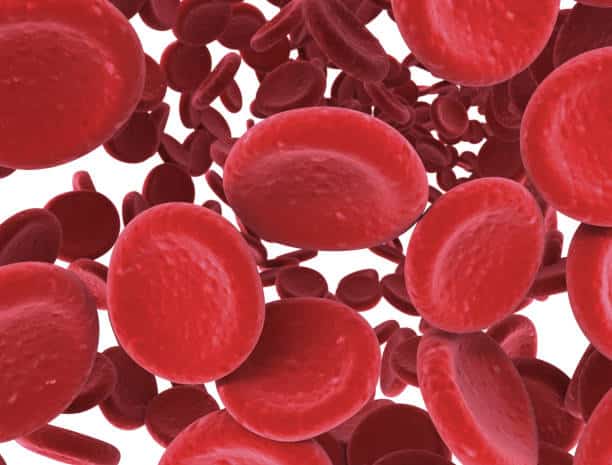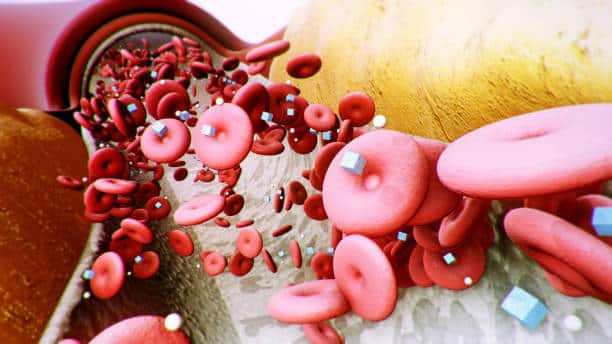5 Signs Your Red Blood Cell Count Is Too Low


The human body has got to be one of the most fascinating things we as humans can ever possess. Not only can the body grow life, it also protects your insides (skin), swells when you see the ones you love (heart), and allows you to smell the sweet aromas of life, such as flowers, good food, good scents, and so much more. The body is one of a kind, so it’s no wonder that they refer to it as a temple. The human body will not only shield you from harm and danger but also let you know when harm or danger is near. One of the best things that the human body will do for you is show you that it needs help. Just like your body will let you know if there is danger near with a gut feeling, your body will let you know if it’s not functioning properly with unusual symptoms. Especially when it comes to your red blood cell count levels.
The Realities You Face With A Low Red Blood Cell Count
Your red blood cells are extremely important to your body. Red blood cells are a type of blood cell that is created in the bone marrow and found in the blood. Red blood cells have a protein in them called hemoglobin, which carries oxygen from the lungs to other parts of the body. Red blood cells also remove carbon dioxide from the body by bringing it to your lungs, so you can get rid of the carbon dioxide by exhaling.
If you have a low red blood cell count, many things could possibly begin to happen to your body.
For one, parts of your body may not be getting enough oxygen since there aren’t enough cells being produced to spread it.
Another issue that can develop from low red blood cell counts is anemia. Once anemia and its many different types develop in the body, you will begin to experience symptoms such as fatigue, tiredness, pale skin, a fast heart rate, always feeling cold, and even heart disease later on.
RELATED: Five Iron-Rich Foods to Give Anemia Eviction Notice

How This Affects Your Present And Future
With low levels of red blood cells, your body won’t function as properly as it needs to. Children with low levels of RBC will develop more slowly than those with higher levels of RBC. Adults will not only experience symptoms such as tiredness, fatigue and feeling cold often, but they are also more likely to develop other illnesses.
If your red blood cell count is low, you’ve likely developed some type of anemia and once anemia is developed, it exposes you to other serious and severe medical conditions.
If you develop iron-deficiency anemia, then your body now lacks the iron and vitamins that it needs. Lack of iron leads to the development of major depression and the experience of worsening symptoms.
Low levels of red blood cells can also cause the development of sickle cell anemia, which is a more severe and even fatal case of anemia.
What You Need To Know About Sickle Cell Anemia
Sickle cell anemia is a group of disorders known as sickle cell disease. It’s caused by a change in the hemoglobin. Sickle cell is an inherited blood disorder. Sickle cell anemia changes the shape and size of red blood cells and this makes it difficult for blood to flow and can even block blood from flowing as well.
With sickle cell anemia, symptoms usually start to show within six months of age. Symptoms include problems with your vision, swelling in the hands and feet, frequent infections, periods of extreme and severe pain, and more. Sickle cell anemia can lead to organ damage, leg ulcers, blindness, stroke, and many more severe medical conditions.

RELATED: What’s Causing Your Anemia?
What You Can Do To Raise Your Red Blood Cell Count
There are a few ways you can detect if your red blood cell count levels are low. If you:
- Have trouble breathing often
- Are very tired and fatigued all the time
- Notice your skin is paler than usual
- Are experiencing rapid heartbeats
- Are struggling with concentrating or staying alert
These are all signs that your RBC levels are low and you may be developing anemia.
In order to raise your red blood cell count, increase your iron levels. Try incorporating foods such as dark and leafy vegetables, red meat, egg yolks, prunes, raisins, etc., which are all high in iron. Taking iron supplements is helpful as well.
Vitamin B-12, vitamin A, folic acid, vitamin C and even copper are also supplements and vitamins that can help raise your red blood cell count if taken often. Exercising regularly is beneficial because it sends signals to your red blood cells, because your body needs more oxygen.
Remember, your body will always show you what’s wrong and what it needs, so always make sure to look for symptoms and be aware of the changes to your temple.




